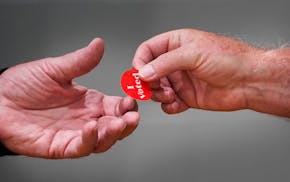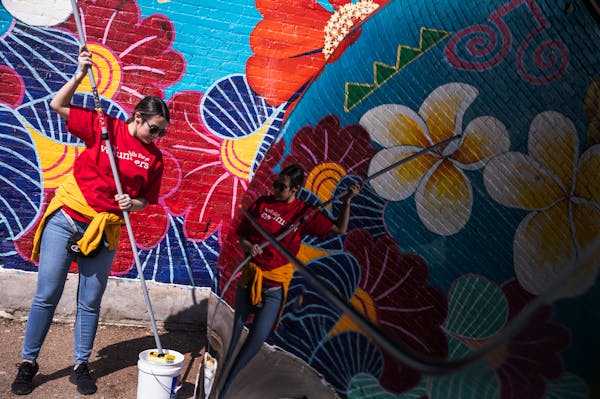The dog that never barked in all the coverage I saw last week about how poorly many Minnesota students had done on statewide reading and math tests ought to have been yelping something like this:
No matter how weak some schools might be.
No matter how policymakers might have fallen down on the job.
No matter how some superintendents might legitimately claim underfunding.
No matter how stultifying bureaucratic constraints might be.
No matter how many families might be in turmoil.
No matter any of it. There simply is no reason many more young people can't work harder at their studies than they do.
Be assured this is not a clichéd rant about how young people in previous generations used to be more industrious, responsible and the rest. I went to high school upwards of two generations ago and I was a senselessly lazy student back then. I know the syndrome hands-on. I also seem to recall a couple of guys like me.
How precisely well or deficiently did students do on the latest round of the Minnesota Comprehensive Assessments? While there were pockets of progress, superseding them, for example, was the failure of nearly two-thirds of high school juniors to meet state standards in math. And as is routinely and dangerously true across the country, not just in Minnesota, students of color on the whole did substantially worse than their white counterparts.
Nothing here should be read as letting any adult off any hook. This applies to educators, parents and everybody else on the autumn side of 18. But very much on the hook are students, as I would ask them to consider what they might do exclusively on their own to learn more and perform better.
Might they be willing to read just one more, reasonably serious book per semester? For students who never read any books, serious or otherwise, might they be persuaded to start and finish one? It's impossible to believe such simple efforts wouldn't show up in aggregate reading scores, at least modestly.
How about actually doing homework when it's assigned? Yes, plenty of students do so scrupulously, but plenty of others, let's say, do so spottily. Again, I know the terrain well.
About 20 years ago I became intrigued by the number of students showing up on Monday mornings at a certain St. Paul high school without any backpack, briefcase or any other means of carrying books. It was prima facie evidence that either they weren't given any weekend homework or they blew it off. Assuming the latter for current purposes, it's a problem that can be fixed without the aid of a single policy breakthrough or extra tax dollar.
Some people are not terribly fond of what might be described as "bootstraps" arguments like these. They contend, for instance, that obstacles faced by young people -- especially those who are poor and minority -- are powerful and systemic and, therefore, beyond the reach or remedy of mere individuals.
Sure, lots of things conspire against kids' excelling academically. Take your perverse pick. And yes, some children come into this world with wheels already greased. Or as a former governor of Texas (not George W. Bush) once said, some people are born on third base and think they've hit a triple.
But name even one person whose rise from a hardscrabble start didn't have something to do with working hard. At any rate, what I'm suggesting here isn't exactly onerous; it doesn't require depleting midnight oils. Rather, read an extra (or first) book every few months. Do some homework over weekends. Use the Internet a bit more for academic pursuits and a bit less for game playing.
So here's a modest proposal I'm entirely literal about. When school resumes in September, everyone who isn't a K-12 student should stifle their brilliant reform ideas for a month. The same applies to their complaints about one education-related problem or another. Instead, I would urge students to use the time and spotlight to imagine how they might achieve at higher academic levels completely on their own. Parents and teachers can help get discussions started, but then they have to butt out.
Mitch Pearlstein is founder and president of the Center of the American Experiment in Minneapolis.
For Mother's Day, I don't want brunch. We need a cease-fire.



